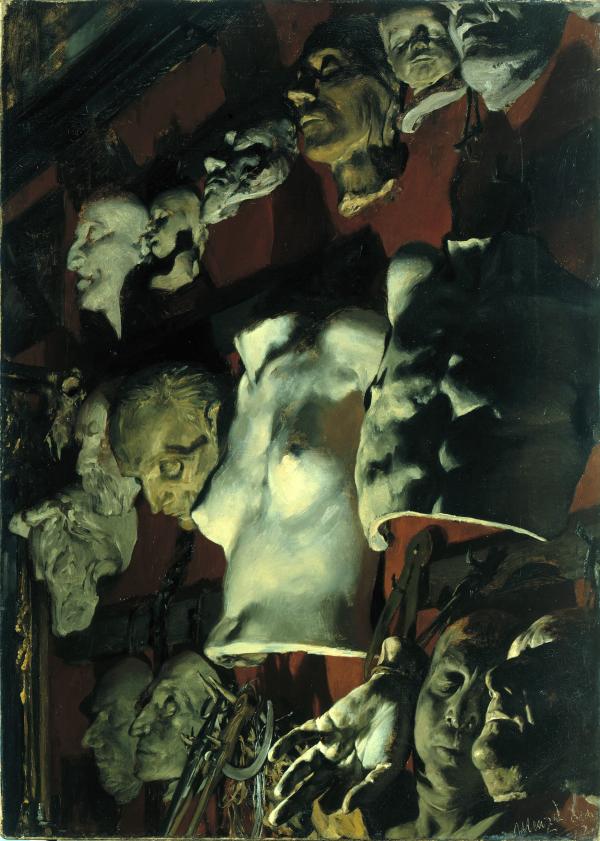Source

Source: Adolph Menzel, Atelierwand [Studio Wall]. Oil painting (1872). Original: Hamburger Kunsthalle, Wikimedia Commons, https://commons.wikimedia.org/wiki/File:Menzel_Atelierwand_Hamburger_Kunsthalle.jpg
This nighttime view of a wall in Menzel’s Ritterstraße studio constitutes a very private contemplation of life, death, youth, and eros. The objects depicted, together with the manner of their execution, create an atmosphere that is eerie, unsettling, and almost visceral in its impact on the viewer. The painting guides the viewer’s gaze sharply upward to an array of plaster casts illuminated by a harsh, artificial light. The intensity of the light source sets off the severed, fragmented forms of the faces and bodies, especially the female torso in the center. It has been argued that Menzel, a self-proclaimed bachelor, used the naked torso of this headless plaster cast to renounce intimacy with the opposite sex. Other pictorial objects are imparted with similarly weighty significance: for example, the death mask hanging just to the left of the torso was painted in honor of Menzel’s friend Friedrich Eggers, who died on August 11, 1872. More generally, the phantom-like quality of the casts harkens back to the disemboweled suits of armor that Menzel drew in the winter of 1866–67, just after he had completed an exhausting period of creative work in the armory of the royal palace. In Studio Wall, Menzel presents neither a random juxtaposition of objects nor an allegorical scheme; rather, he conveys the urgent, ephemeral nature of fundamental aspects of human life. By October 1872, the date inscribed in the corner of this painting, Menzel had already begun work on The Iron-Rolling Mill (completed in 1875).

Source: Adolph Menzel, Atelierwand [Studio Wall]. Oil painting (1872). Original: Hamburger Kunsthalle, Wikimedia Commons, https://commons.wikimedia.org/wiki/File:Menzel_Atelierwand_Hamburger_Kunsthalle.jpg